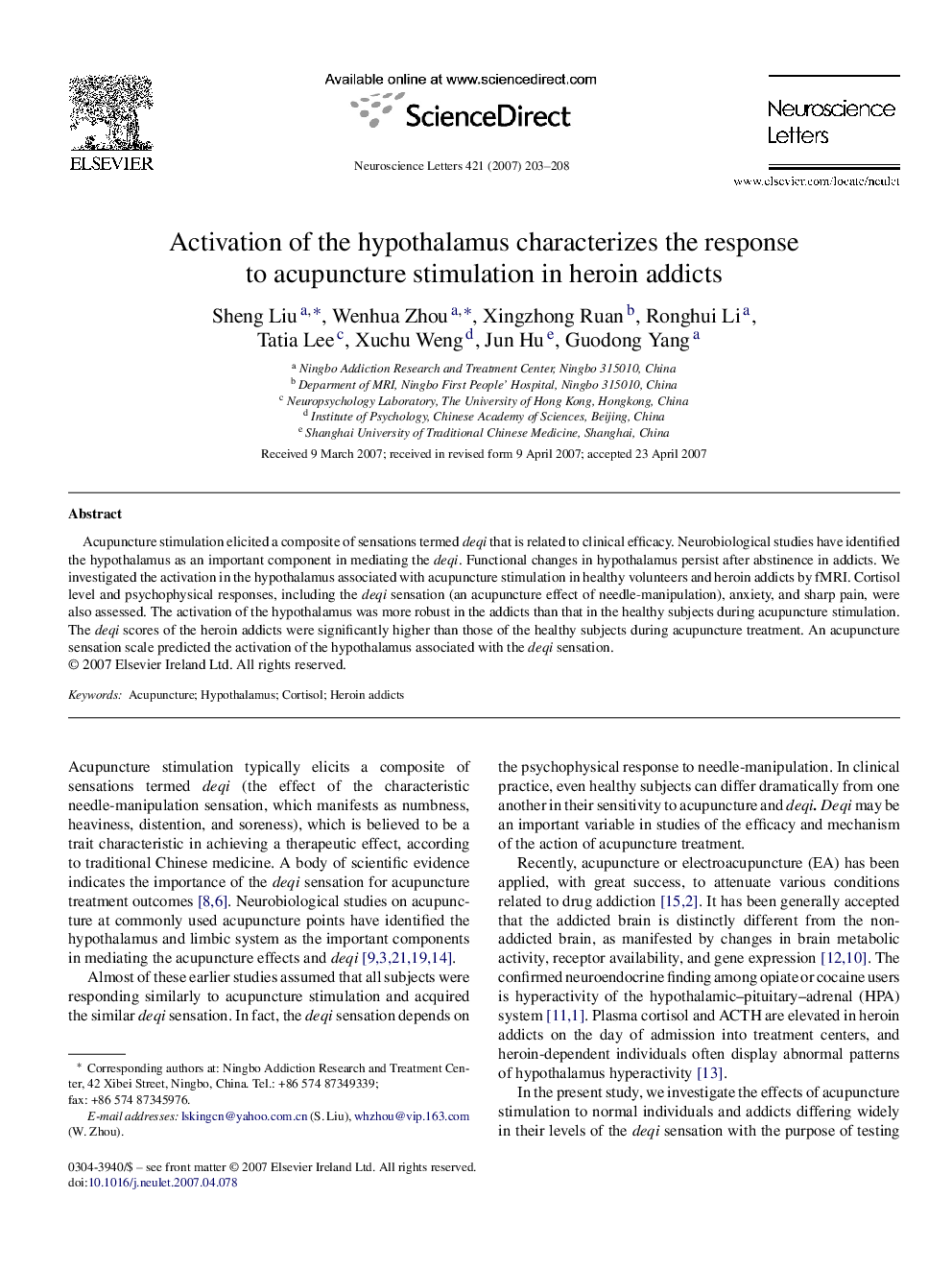| Article ID | Journal | Published Year | Pages | File Type |
|---|---|---|---|---|
| 4349286 | Neuroscience Letters | 2007 | 6 Pages |
Acupuncture stimulation elicited a composite of sensations termed deqi that is related to clinical efficacy. Neurobiological studies have identified the hypothalamus as an important component in mediating the deqi. Functional changes in hypothalamus persist after abstinence in addicts. We investigated the activation in the hypothalamus associated with acupuncture stimulation in healthy volunteers and heroin addicts by fMRI. Cortisol level and psychophysical responses, including the deqi sensation (an acupuncture effect of needle-manipulation), anxiety, and sharp pain, were also assessed. The activation of the hypothalamus was more robust in the addicts than that in the healthy subjects during acupuncture stimulation. The deqi scores of the heroin addicts were significantly higher than those of the healthy subjects during acupuncture treatment. An acupuncture sensation scale predicted the activation of the hypothalamus associated with the deqi sensation.
